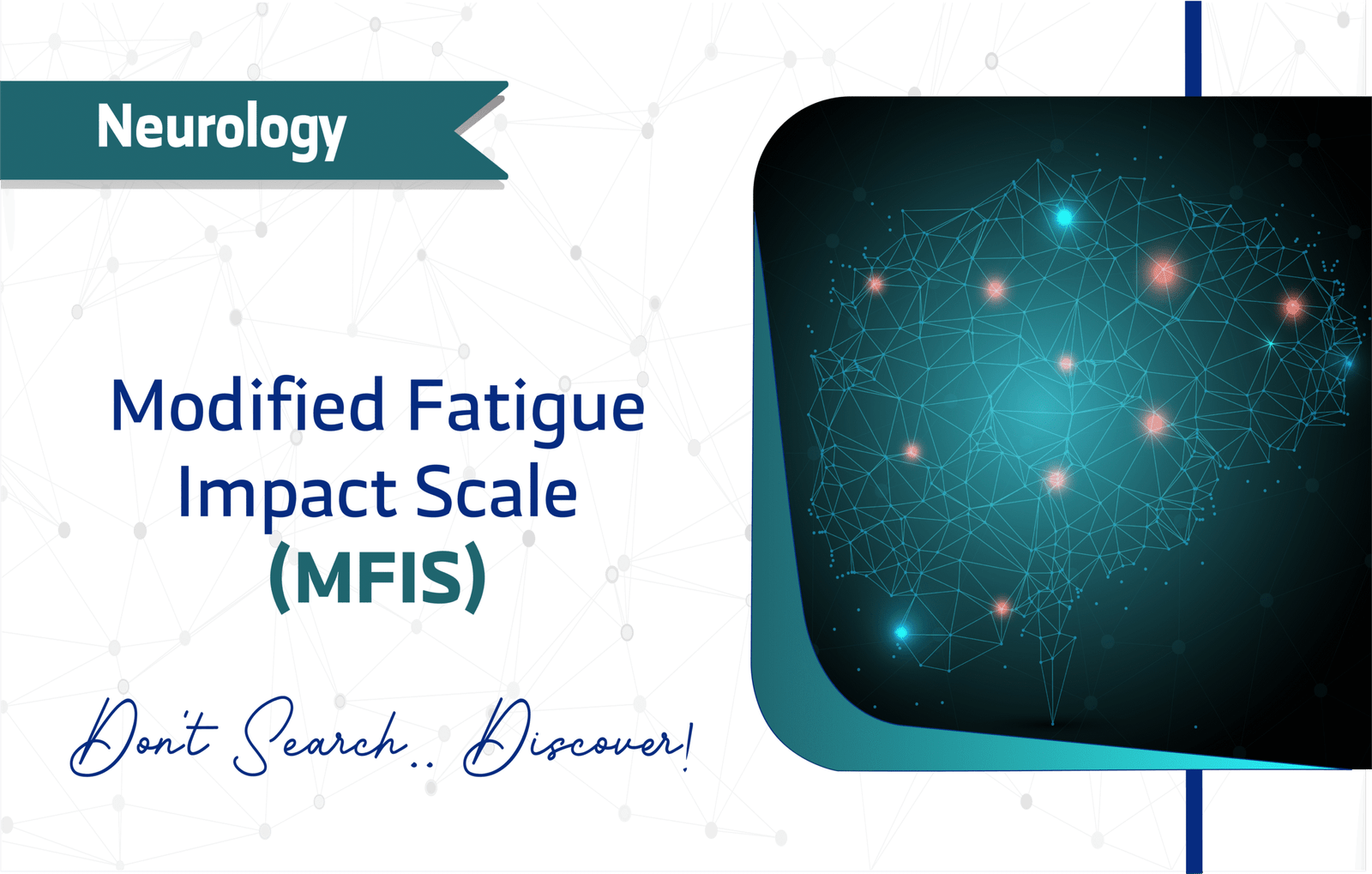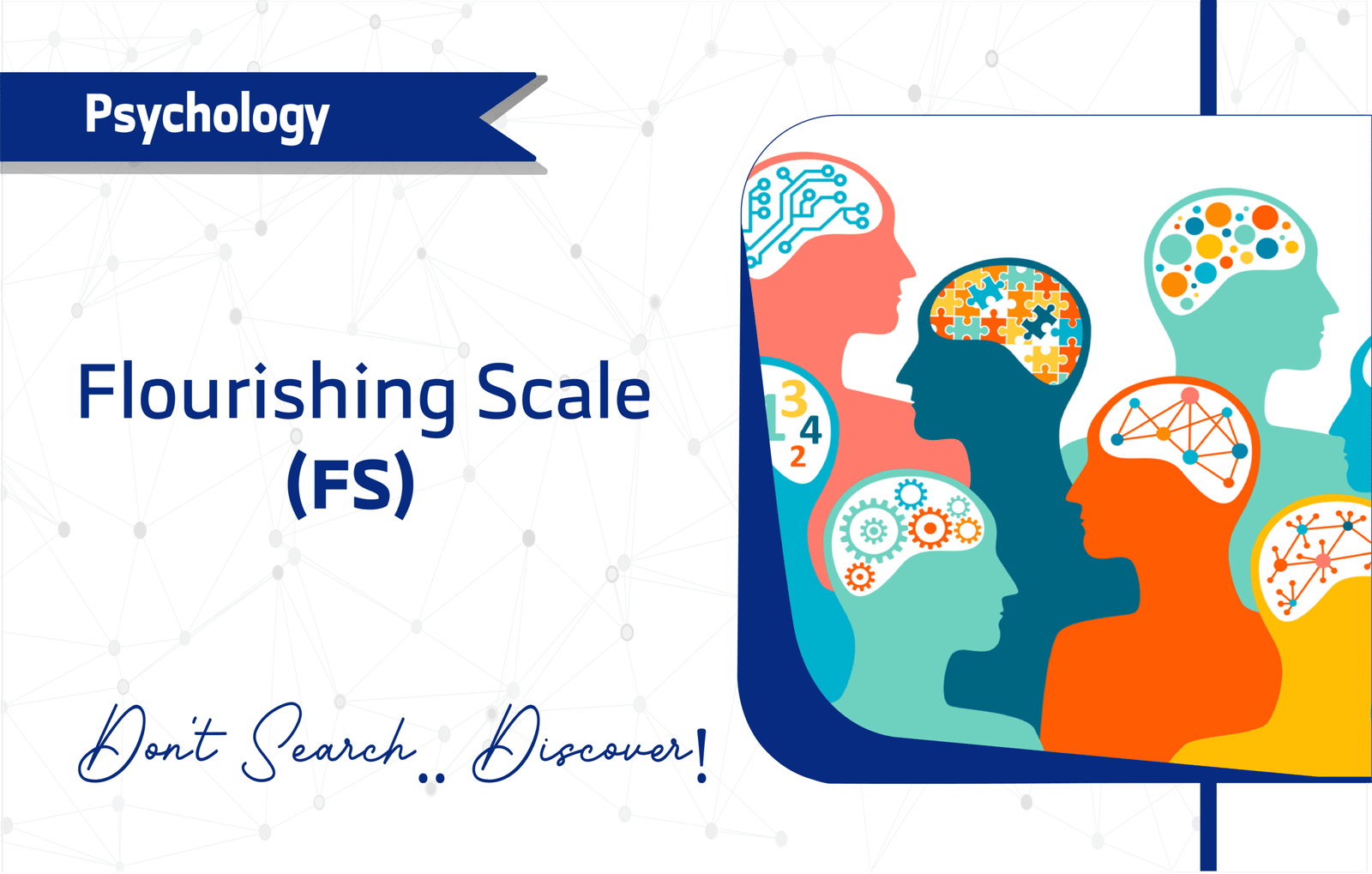Introduction
The Modified Fatigue Impact Scale (MFIS), developed in 1997 by Nicholas G. LaRocca, David M. Miller, and colleagues, is a refined 21-item version of the original Fatigue Impact Scale (FIS). Recognized as a cornerstone instrument for assessing the pervasive effects of fatigue, the MFIS has garnered over 1,000 citations, underscoring its significant value in clinical and research settings.
The MFIS is frequently employed by clinicians to evaluate fatigue in adults with chronic neurological conditions, such as multiple sclerosis (MS), stroke, and Parkinson’s disease. This guide provides a comprehensive overview of the MFIS, serving as a valuable resource for neurology experts and researchers aiming to understand and apply this instrument effectively.
Key Features of the Modified Fatigue Impact Scale (MFIS)
Purpose and Use
The primary purpose of the MFIS is to assess the impact of fatigue on cognitive, physical, and psychosocial functioning over the past four weeks. Unlike scales that only measure general tiredness, the MFIS provides a detailed, multidimensional assessment that captures the tangible effects of fatigue on daily activities. Consequently, this detailed approach makes it exceptionally useful for clinicians who need to understand the full scope of a patient’s fatigue and for researchers aiming to measure meaningful changes in response to therapeutic interventions.
Target Population
Developers designed the MFIS for adults aged 18 and older who are experiencing fatigue, particularly those with neurological conditions. Its validity is well-documented in populations with multiple sclerosis; however, clinicians also widely apply it to individuals with immune system disorders, stroke, Parkinson’s disease, and brain injuries.
Structure
The MFIS includes 21 items that fall into three subscales, with each assessing a specific dimension of fatigue:
- Cognitive Functioning (10 items): This includes items 1 (less alert), 2 (paying attention), 3 (think clearly), 5 (forgetful), 11 (decisions), 12 (thinking motivation), 15 (finish thinking), 16 (organize thoughts), 18 (thinking slowed), and 19 (concentrate).
Physical Functioning (9 items): This subscale contains items 4 (clumsy), 6 (pace), 7 (physical motivation), 10 (maintain physical effort), 13 (weak), 14 (discomfort), 17 (complete tasks), 20 (limit activity), and 21 (rest).
Psychosocial Functioning (2 items): This consists of items 8 (social motivation) and 9 (limited outside).
The questionnaire typically takes 5 to 10 minutes to complete and uses a 5-point Likert scale response format, which allows patients to rate the frequency of fatigue-related experiences.
Scoring Method
The MFIS uses a 5-point Likert scale for each of its 21 items, where responses range from 0 (‘Never’) to 4 (‘Almost always’). The scoring process is straightforward:
- Total Score: One calculates the total score by summing the scores for all 21 items, which results in a possible range of 0 to 84.
- Subscale Scores: A user can also calculate scores for each domain separately: Physical (0–36), Cognitive (0–40), and Psychosocial (0–8).
- Interpretation: Importantly, higher scores consistently indicate a greater impact of fatigue on the patient’s activities. Although no universal cut-off exists, some research utilizes a total score of 38 to differentiate between fatigued and non-fatigued individuals.
Administration Format
The MFIS offers excellent flexibility, and administrators can use it through various formats to suit different settings:
Paper-based forms
Digital (Online) platforms
Interview (In-person)
Notably, developers designed it as a self-administered tool that requires no specialized training for administration or interpretation, which enhances its practicality.
Applications of Modified Fatigue Impact Scale (MFIS)
The MFIS is a versatile tool with several key applications in both clinical care and scientific investigation:
Screening: First, it efficiently identifies patients experiencing significant fatigue-related disability who may need further evaluation or support.
Monitoring: In addition, the scale is highly effective for tracking changes in fatigue over time or in response to treatment, thereby providing valuable data on patient progress.
Research: Finally, as its extensive citations show, the MFIS is a go-to instrument in clinical trials for evaluating the efficacy of treatments aimed at alleviating fatigue in chronic diseases.
Languages and Availability
A significant strength of the MFIS is its global accessibility. The scale has been translated and validated in more than 20 languages, including Arabic, Mandarin Chinese, Spanish, French, Russian, German, Portuguese, Japanese, and Hindi. Furthermore, the MFIS is in the Public Domain, meaning it is entirely free for use by clinicians, researchers, and organizations without needing to pay a fee or obtain permission.
Reliability and Validity
The MFIS demonstrates high reliability and validity, making it a trusted instrument for assessing fatigue impact across chronic illness populations. It exhibits a Cronbach’s alpha of 0.81, indicating strong internal consistency. Additionally, multiple studies have confirmed its test-retest reliability and psychometric robustness, ensuring reproducible results over time.
Key validation studies include:
Limitations and Considerations
Despite its strengths, the MFIS has a few limitations:
Self-report: As a self-reported measure, patient interpretation or other subjective factors may influence responses.
Cultural Bias: While widely translated, cultural nuances may affect how people interpret questions in different populations, creating a potential source of bias.
Limited Validation Studies: For certain less-studied chronic conditions, dedicated validation studies for the MFIS may be limited.
Other Versions and Related Questionnaires
The MFIS is part of a family of related instruments, which gives researchers and clinicians several options:
- Other Versions: These include the original Fatigue Impact Scale (FIS), the abbreviated Modified Fatigue Impact Scale–5-Item (MFIS-5), and the Daily Fatigue Impact Scale (D-FIS) for more frequent assessments.
Complementary Questionnaires: Clinicians often use the MFIS alongside the Fatigue Severity Scale (FSS), which provides a complementary perspective on fatigue.
Additional Resources
- Access the original validation study: Fisk et al. (1994)
- Download the MFIS as a PDF: MFIS Questionnaire
- For additional MFIS resources, consult PubMed.
Frequently Asked Questions (FAQ)
Who can use the MFIS?
Clinicians, researchers, and healthcare providers use the MFIS for adults aged 18 and older who are experiencing fatigue, especially those with chronic conditions like multiple sclerosis.How long does it take to complete the MFIS?
Patients typically take 5 to 10 minutes to complete the MFIS; as a result, it is highly feasible for use in both clinical and research settings.How is the MFIS administered?
Healthcare teams can administer the questionnaire via paper, digital, or in-person interview formats, which offers great flexibility.Is there any cost to using the MFIS?
The MFIS is in the public domain and is therefore free for all non-commercial and commercial use.
A Word from ResRef about Modified Fatigue Impact Scale (MFIS)
The MFIS is a robust tool for assessing fatigue impact, particularly in MS and chronic illness populations. Its multidimensional structure provides a nuanced understanding that goes beyond simple measures of tiredness. Moreover, because it is free, easy to administer, and well-validated, the MFIS remains an indispensable instrument for any professional working to mitigate the impact of fatigue. Consequently, its use can lead directly to better patient monitoring and more informed clinical research.
References
- Fisk JD, Pontefract A, Ritvo PG, Archibald CJ, Murray TJ. The impact of fatigue on patients with multiple sclerosis. Can J Neurol Sci. 1994 Feb;21(1):9-14. PMID: 8180914. Link
- Larson RD. Psychometric properties of the modified fatigue impact scale. Int J MS Care. 2013 Spring;15(1):15-20. doi: 10.7224/1537-2073.2012-019. PMID: 24453758; PMCID: PMC3883028. Link
- Téllez N, Río J, Tintoré M, Nos C, Galán I, Montalban X. Does the Modified Fatigue Impact Scale offer a more comprehensive assessment of fatigue in MS? Mult Scler. 2005 Apr;11(2):198-202. doi: 10.1191/1352458505ms1148oa. PMID: 15794395. Link
- Mills RJ, Young CA, Pallant JF, Tennant A. Rasch analysis of the Modified Fatigue Impact Scale (MFIS) in multiple sclerosis. J Neurol Neurosurg Psychiatry. 2010 Sep;81(9):1049-51. doi: 10.1136/jnnp.2008.151340. Epub 2010 Jun 14. PMID: 20547635. Link
- Strober LB, Bruce JM, Arnett PA, Alschuler KN, DeLuca J, Chiaravalloti N, Lebkuecher A, Di Benedetto M, Cozart J, Thelen J, Guty E, Román CAF. Tired of not knowing what that fatigue score means? Normative data of the Modified Fatigue Impact Scale (MFIS). Mult Scler Relat Disord. 2020 Nov;46:102576. doi: 10.1016/j.msard.2020.102576. Epub 2020 Oct 13. PMID: 33296974. Link
- Rietberg MB, Van Wegen EE, Kwakkel G. Measuring fatigue in patients with multiple sclerosis: reproducibility, responsiveness and concurrent validity of three Dutch self-report questionnaires. Disabil Rehabil. 2010;32(22):1870-6. doi: 10.3109/09638281003734458. Erratum in: Disabil Rehabil. 2011;33(13-14):1298. PMID: 20345240. Link
- D’Souza E. Modified Fatigue Impact Scale – 5-item version (MFIS-5). Occup Med (Lond). 2016 Apr;66(3):256-7. doi: 10.1093/occmed/kqv106. PMID: 27016749. Link








